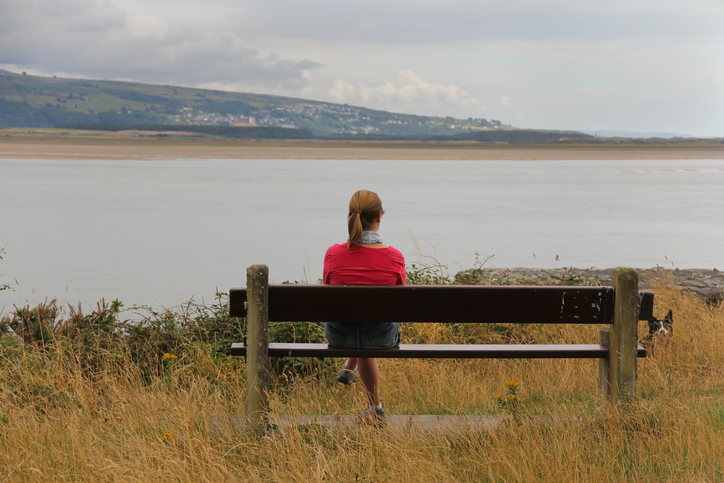Our response to Ofwat’s discussion paper on climate change principles

We welcome the opportunity to contribute to discussion on Ofwat’s climate change principles. The effects of climate change are already being experienced in England and Wales, through warmer and wetter winters, and hotter and drier summers. The dry and hot conditions experienced this summer are a reminder of the challenges we are likely to experience if we don’t take action to adapt to climate change.
Detailed response
We support Ofwat’s proposal to develop the climate change principles. As stated in the document, these will help to guide companies in their response to climate change in a way that reflects companies’ individual circumstances and promotes consistency across the sector.
We also agree that responding to the impacts of climate change and reducing the associated risks will require collaboration, stakeholder engagement and buy in from customers. It is very positive to see in the water companies’ climate change adaptation reports the actions they are taking to adapt to climate change, and also how most of them are taking into consideration customers’ views and insights from their regulatory plans. We were also encouraged to note in these reports that affordability is being considered in adaptation, with companies taking various approaches to support customers based on their circumstances.
Even though climate change adaptation is a devolved matter, CCW supports and encourages water companies in England and Wales producing adaptation reports. These should be supported by relevant policies and legislation, and consider UKWIR’s Common Framework for Climate Change Adaptation. These reports link adaptation, companies’ regulatory plans and showcase positive activities companies take forward to meet current and future challenges. Some of them also include a call to action for customers, to reduce their water use and use drains and sewers in a responsible way. These reports also help to establish how well adapted water companies are, areas for ongoing improvement.
Proposed climate change principles
At CCW we support the proposed set of principles to provide a common ground for action on climate change. To enable the successful implementation of the principles and the delivery of the desired outcomes, water companies in England and Wales should:
- share and build on good practice,
- test and adopt new approaches where appropriate and
- take opportunities to work together to maximise benefits.
We support companies embedding climate change in their decision making processes, and regulatory planning.
One thing we would like more clarity on, is how these principles will be implemented to take into consideration the differences in the way adaptation and mitigation are approached in England and Wales.
Comprehensive and integrated actions by companies
Customers want safe, resilient and affordable water and wastewater services now and in the future. Missed performance targets in key areas such as leakage and supply interruptions undermine trust. For these reasons, water companies need to consider and plan for instances when the interdependencies with other sectors (telecoms, energy, transport, supply chains) affect the levels of service customers expect. We welcome efforts and progress towards improving the understanding of these risks and how they are managed and addressed.
Monitor and reporting
CCW supports the need to monitor and report on progress. As a result, we think that the relevant metrics should be aligned with the targets set by government. Doing so will help to assess company performance in relevant areas, such as operational and embedded carbon emissions or key commitments on demand management. We agree that there are opportunities to improve how the sector monitors progress and action on adaptation, especially after the recent assessment by the Committee on Climate Change.
Research and innovation
We agree that research and innovation will play a key role in adaptation and mitigation to climate change and protecting the environment. As highlighted in the discussion document, many of the solutions to current challenges are ‘in their infancy or not developed yet’. Water companies are expected to support open data across a diverse range of applications to improve knowledge and understanding. An area where collaboration and the access to open data can support the realisation of the expected benefits is the roll-out of smart meters which in turn can help to reduce water demand.
Actively engaging stakeholders
Stakeholder engagement is and will continue to be a fundamental part of adapting to climate change. Companies are already taking steps to address this, by establishing partnerships with local stakeholders including land owners, farmers and other water users. Water companies are also gathering insights from current and future customers to understand their priorities and willingness to pay today for investment that will benefit future generations. Adaptation to and mitigation of climate change will require additional investment. We would like to see how affordability of future bills will be considered as part of the proposed principles.
CCW continues to call for water companies in England and Wales to improve on how companies present the information about climate change to their customers by making it more visible in their websites, and more engaging for a non-technical audience. Customers have a part to play: reducing water use and using drains and sewers in a responsible way can go a long way in adapting and mitigating climate change. Also, presenting the risks, challenges and actions that companies are taking to address them helps to provide reassurance and could increase customer trust.



